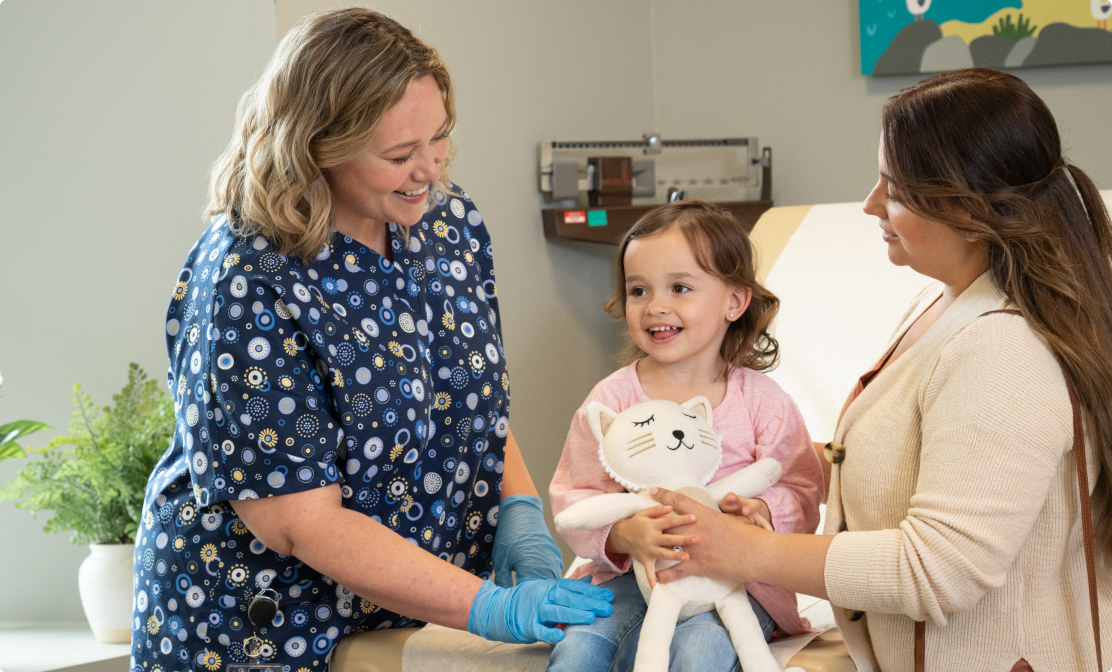Preventive Care
Annual physical exams and other preventive services are free when you use a Preferred provider.
Preventive Care
Watch this video to take a closer look at your preventive care benefits and see how they can help you stay on top of your health.
As a Service Benefit Plan member, everyone on your plan can access a wide range of preventive care services—at no cost—when seeing a Preferred provider. Speak to your primary care doctor about which preventive care services are recommended for you.
These can help you and your doctor identify lifestyle changes you can make to avoid certain health conditions.
- Annual Physical
- Blood Pressure
- Cholesterol
- Diabetes
- Hepatitis C
- Tobacco Use
- Well-child Visits
It's recommended that everyone receive routine vaccinations depending on age and medical history. This includes:
- Influenza (Flu Shot)
- Chickenpox
- Measles, Mumps, Rubella (MMR)
- Tetanus, Diphtheria, Pertussis (Tdap)
- Shingles
We cover certain antiretroviral therapy medications for HIV for those at risk but who do not have HIV. The list of medications can be found on this website.
If you are currently taking PrEP, we provide the following at 100%:
- Lipid panel and STI screening covered once yearly with routine diagnosis code
- Currently we pay for renal function panel, creatinine, hepatitis B and C screenings
- Additional HIV testing as needed to monitor the patient is also covered
Early cancer detection helps prevent the need for extensive treatment.
- Breast Cancer/Mammograms
- Cervical Cancer
- Colon Cancer
Osteoporosis is a condition characterized by decreased bone density and increased fracture risk.
The current USPSTF recommendations are:
- Women age 65 and older
- Postmenopausal women under 65 if one or more risk factors are present
- NEW: Women aged 40 and older without known osteoporosis or history of fragility fractures. It does not apply to persons with secondary osteoporosis due to an underlying medical condition or chronic use of medication. Further information on this recommendation can be found at www.uspreventiveservicestaskforce.org.
Voluntary Family Planning
Whether you’re starting a family today or in the future, our reproductive care benefits can help. We’re here to support your family’s journey every step of the way.
Learn More
Ensure your child is healthy at every age
During their early years, children experience a lot of important development for their health. Through age 18, children should regularly see the doctor to make sure they’re growing up healthy and on track—even if they’re feeling well. These are called ‘well-child visits.’ These visits allow your child’s doctor to keep an eye out for key developmental milestones and get important routine vaccines.

Well-child visits are essential during the first 30 months of life
Babies need extra attention early in life. Newborns should have at least six well-child visits with their doctor during their first 15 months.
Your baby should then have at least two more well-child visits with their doctor before they turn 30 months old.
Routine Annual Physical Incentive Program
FEP Blue Focus® members can get rewarded for having their annual checkup. Earn rewards like a personalized nutrition plan, a free health club membership or other incentives.
Learn More